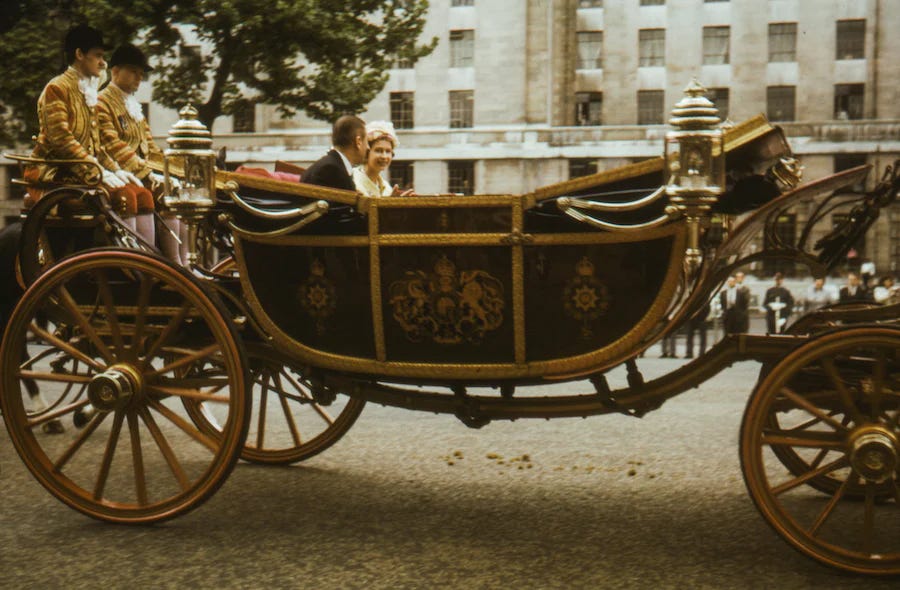It should be possible to respect certain elements of a person’s life and not otherwise care very much about who they were. Queen Elizabeth never wanted that job. Which, by the way, is not easy. Just remember that time she had to smile and make small talk at dinner with Donald Trump while wearing what must have been an exquisitely uncomfortable gown.
Like, ew.
Anyway, it’s a relentless job that she never sought or wanted. But it fell on her shoulders anyway. From the moment her uncle resigned, she lived for that job. She showed up every single day for decades upon decades. If she complained or bitched, we didn’t hear about it.
I respect that. And that’s all I’m going to say about her as a monarch or a person.
Now, for the institution. Clearly, now that she’s gone, it must go, too. It should have gone a very long time ago. It represents the worst of colonialism, the untold suffering of incalculable numbers of people around the globe — starting with Indigenous peoples here in what is now North America — the shameless pillaging of natural resources, and on and on it goes. I’m sure somewhere along the lines the monarchy did a couple of things right. But to my mind they don’t come anywhere near close enough to make a difference.
Remind yourself that the good things we enjoy in Canada today — including our system of parliament — were won by the people fighting monarchs, not the other way around. Sure, this particular queen signed the 1982 constitution. Well, technically what she signed was the proclamation bringing the Constitution Act, 1982 into force for Canada. But the battle to establish a commons independent from monarchs, that didn’t come from the crown, quite the opposite. One of those monarchs against whom very brave parliamentarians battled was Charles I, incidentally. A fateful name for a king, that. Mais passons.
The monarchy, with its castles and gold carriages and jewels and all manner of land and wealth, represents a system where humans are “subjects” of a crown, not full citizens in their own right. I know much of the difference is symbolic nowadays. But this begs the question: Why keep empty symbols?
Being a Quebecer, my feelings are further mixed on this. We’re still sore about 1760, you know. Elizabeth was not welcome in Quebec, and mostly stayed away. This always enraged monarchists in Canada, and I promise you Quebecers gave not a hoot about that.
Anti-monarchy sentiment was always much stronger in the province where I grew up, and you’ll notice how, ah, modest, the tributes from Quebec will be over the coming days.
There’s more. You will also notice, if you care to look, that people from non-WASP backgrounds are either very quiet or openly hostile to all this outpouring of grief. If you are yourself WASP, I’m asking you to take the time to reflect on why people whose ancestors (or themselves) have been harmed by colonialism are reacting the way they are, and then ask yourself whether it’s right that some people should benefit from that institution at the expense of so many others.
Elizabeth can finally rest. I am glad of that for her.
It’s time for the rest of us to get to work.




